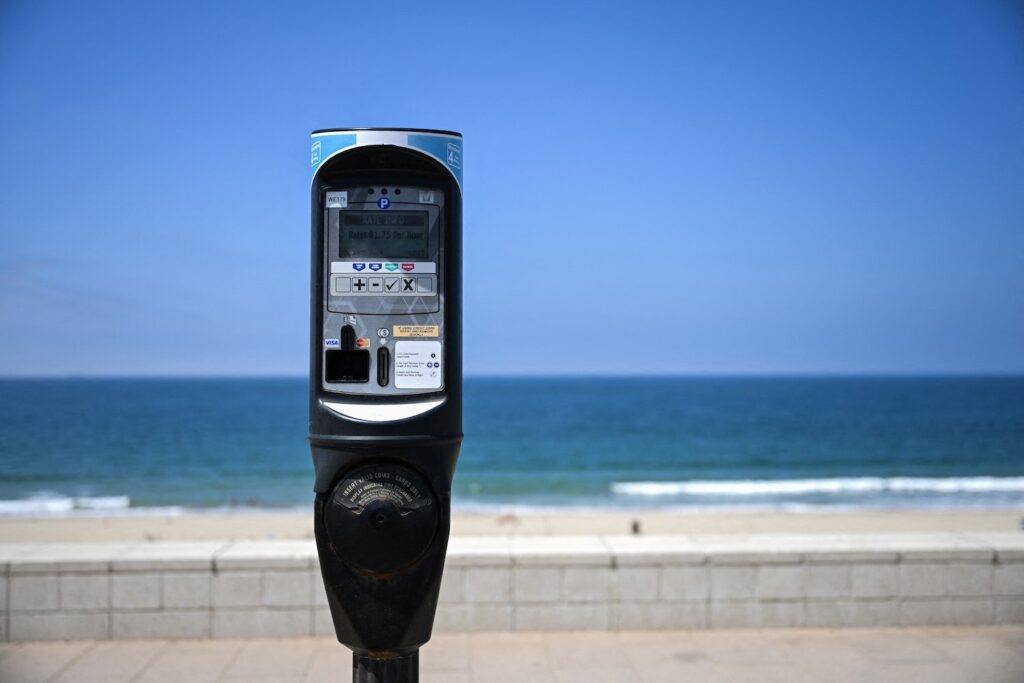You’ve probably been there. You walk up to the parking meter and just want to pay and get on with your day. But instead of the old-fashioned way of dropping some coins into a machine, there are a dozen slightly different ways to pay so you can finally get on with your day. One of the ways is to scan a QR code, which will take you to a website where you can do this. But next time you go through this annoying dance, you might want to take a closer look at that little pixelated graphic.
Police in Southern California are warning residents that QR codes are attached to parking meters and are directing unsuspecting people to websites that have nothing to do with actual payments to local governments. Official companies processing payments in the region are known by names like ParkMobile and PayByPhone, but QR codes direct people to fake websites that often only have one letter.
For example, drivers who try to pay using a fake QR code are not sent to PayByPhone but are instead directed to “poybyphone.” The scammers succeeded by simply placing a sticker on the parking terminal to make the QR code look similar to the style of the official information.

The city of Redondo Beach, south of Los Angeles, has reported at least 150 such fake QR codes, with a high concentration on the Esplanade and Riviera, according to a news release from Redondo Beach police. village area.
“We put in the URL. The URL – the first five searches on Google were fake,” one man told ABC7 in Los Angeles. “It’s a scam. It has signs. It says ‘Passport Parking’.
Oddly, despite reports that the Orange County city of San Clemente, south of Redondo Beach, has experienced the same QR code scam, a notice posted on the city’s website said officials could not find it. Any fraudulent activity.
“A recent news report indicates possible QR code fraud related to paid parking in San Clemente. Please note that we have investigated this and have not found fraudulent QR codes. “While the City Staff will continue to work diligently, but we encourage the public to be suspicious of QR codes that appear to be damaged or tampered with, or stickers affixed to the original QR code. “
What can you do to protect yourself? Obviously, the safest option is to just pay cash if you can. But be sure to double-check any URL you may land on or arrive at when trying to pay for parking. If you can, avoid scanning random QR codes entirely. The use of QR codes wasn’t particularly common in daily life in the United States until the covid-19 pandemic really started pushing many restaurants to adopt QR codes in place of physical menus.
But QR codes can really make things easier and more convenient when you’re trying to find a website. trade off? You have to work very hard to make sure you’re visiting the site you want to visit and don’t get attacked by malware or just hand over your money to a scammer.

